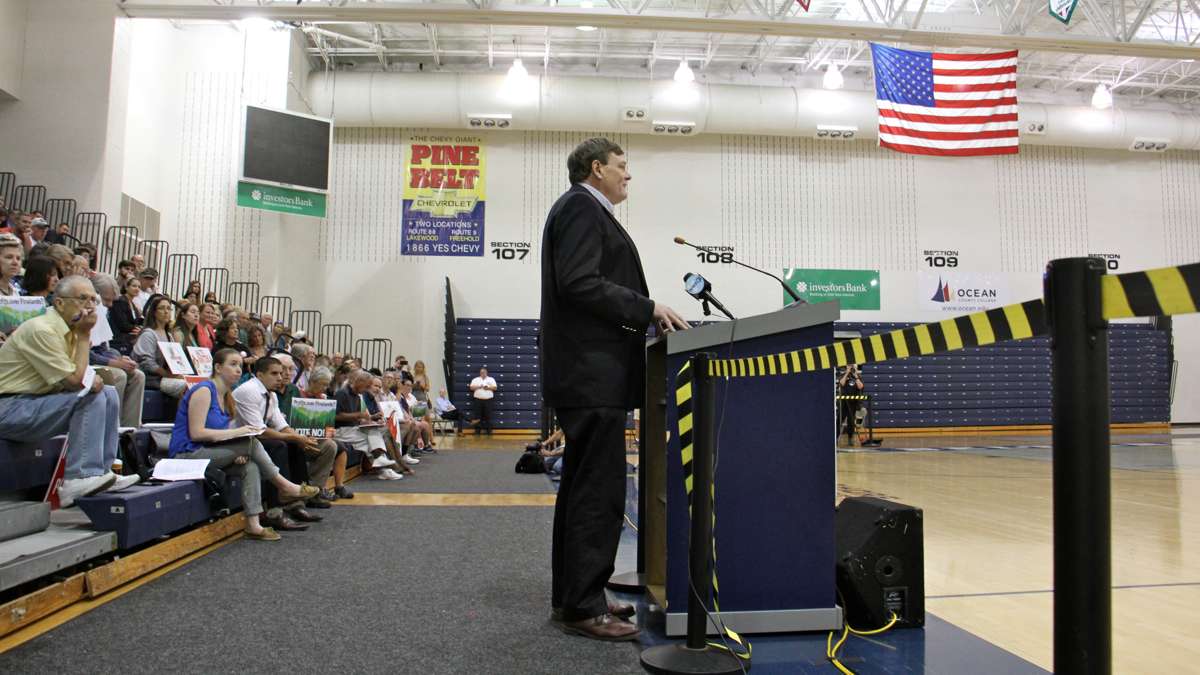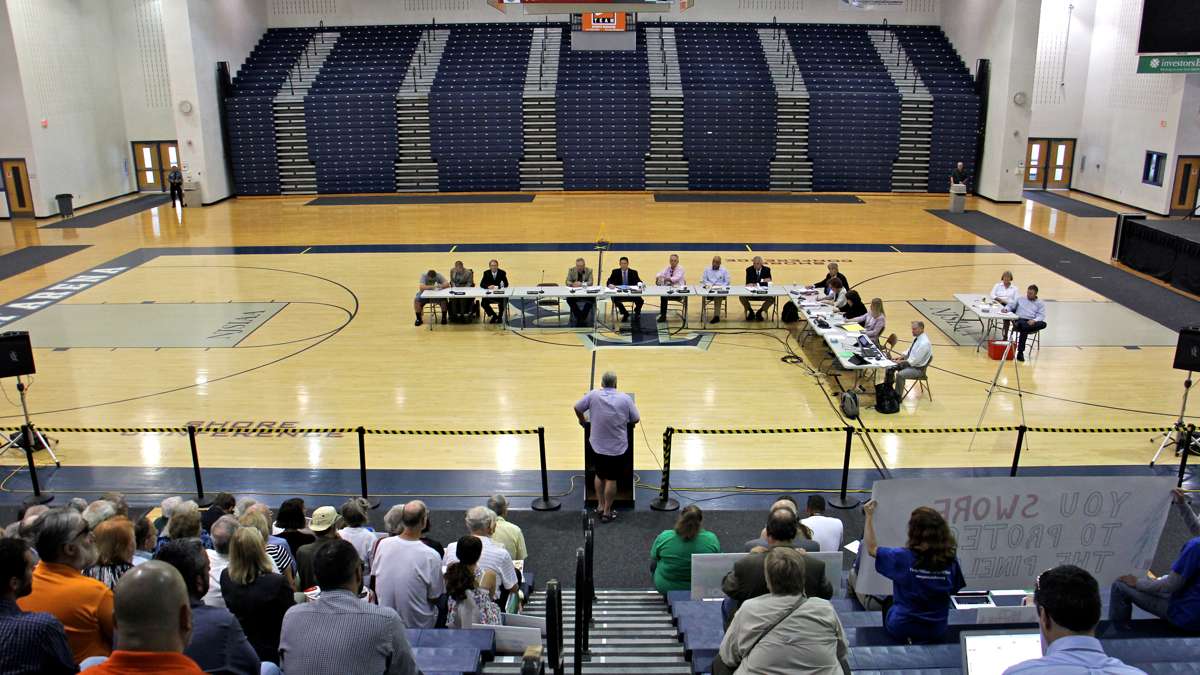Highlighting environmental risks, critics of Pinelands pipeline say ‘we can’t drink gas’
ListenResidents and environmentalists overwhelmingly blasted a proposed natural gas pipeline through the Pinelands in South Jersey during a public meeting Wednesday, but a few supporters of the project said there was a need for energy resiliency in the region.
The Pinelands Commission held the meeting at the Pine Belt Arena in Toms River after a state appellate court told the agency it could not approve the project without public participation. Commission staff had previously signed off on the so-called Southern Reliability Link pipeline through an administrative process.
Arguments against the proposed pipeline largely rested on environmental grounds. Critics said the pipeline could rupture or — worse — explode.
Bricktown teacher James Conroy worried about the possible effects of contamination on the water supply. Although he says he understands the need for energy — he uses gas to heat his home — Conroy added that the environmental risks of the project are too high. “We can’t drink gas. We can’t harvest blueberries from poisoned bogs. And we can’t raise animals when surrounding water becomes contaminated,” Conroy said. “That’s what eventually is going to happen.”
But others rejected the idea that pipelines are inherently dangerous.
Christopher Bohlke, of Chatsworth, is a member of the International Union of Operating Engineers Local 825 and has helped build pipelines. He described a recent job running pipes underneath the Delaware River. “Not one leak. Not one frack-out. The pipe went exactly where it was supposed to be,” he said. “I would welcome natural gas to Chatsworth, and so would many of my neighbors.”
Slightly less than half of the 30-mile pipeline would pass through through the Pinelands, including part of Joint Base McGuire-Dix-Lakehurst.
New Jersey Natural Gas, the company behind the SRL project, says the pipeline would provide a second source of fuel to the region and that there is a need for natural gas at the base, a contention that critics question. An NJNG spokesman noted that the company already has approvals from other agencies, including the Board of Public Utilities.
In December 2015 the executive director of the Pinelands Commission signed off on the project, but a state court later ordered the agency to put the proposal before the full board.
Another natural gas pipeline, located further south in the Pinelands, was approved by the commission in February before a raucous crowd of protesters.
Still, opponents made their voices heard Wednesday, criticizing not only the possible environmental impacts of the project but also the way the Pinelands Commission has handled the application from NJNG.
Many said the 9:30 a.m. event was too inconvenient for people who have jobs, and that the 3-minute limit placed on speakers was too short. Others noted that the meeting place, in Toms River, was not even located on the pipeline route.
Toms River resident Jacqueline Cardini used the location to highlight the potential for serious damage from environmental disasters. Cardini said her sister was one of the children who developed cancer in the 1980s and 90s in Toms River from what many suspect were polluted water wells.
“We want the government to do their job. And holding up their end of the bargain in this social contract is protecting us from enemies both foreign and domestic,” Cardini said. “Because these companies bribe a few workers with temporary jobs you even think of approving this? Incredible. Where is your conscience?”
WHYY is your source for fact-based, in-depth journalism and information. As a nonprofit organization, we rely on financial support from readers like you. Please give today.











